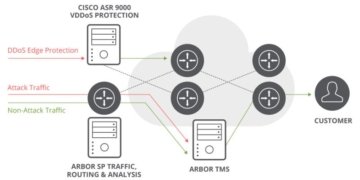The global workplace transformation market is projected to grow from US$16.9 billion in 2024 to US$49.8 billion by 2031, at a compound annual growth rate (CAGR) of 16.7%. This growth is driven by evolving workplace models and technological advancements, as organizations adapt to hybrid work environments. Cloud-based tools for project management and communication are becoming increasingly popular due to their accessibility for remote teams. Regions like North America and Asia Pacific are leading investments in workplace transformation, with businesses focusing on creating flexible, collaborative, and innovative environments to enhance employee experience and productivity.
Request for Sample: https://www.persistencemarketresearch.com/samples/34669
The Growing Impact of Digital Transformation
Digital transformation has become a critical business strategy for companies across industries, impacting every aspect of how they operate and engage with their employees. The workplace transformation market is no exception to this trend, as organizations increasingly recognize the need to integrate digital tools and technologies to create more efficient, agile, and flexible working environments.
From cloud-based solutions to artificial intelligence (AI)-driven platforms, businesses are investing in digital transformation to streamline workflows, improve collaboration, and boost overall productivity. A key factor driving this shift is the rise of remote and hybrid work models, which gained significant traction during the COVID-19 pandemic and have since become the norm in many industries.
Organizations that fail to adapt to these changes risk being left behind in the highly competitive business landscape. The adoption of cloud-based applications, virtual communication tools, and data analytics platforms is enabling companies to enhance decision-making, foster innovation, and stay ahead of the competition.
Demand for Flexible Workspaces Drives Market Growth
One of the most prominent trends in workplace transformation is the growing demand for flexible workspaces. As employees increasingly prioritize work-life balance, businesses are responding by offering more flexibility in how, when, and where work gets done.
The traditional 9-to-5 office model is rapidly being replaced by hybrid and remote work models, where employees can work from home or co-working spaces while maintaining access to the same digital tools and resources as their in-office counterparts. This shift not only improves employee satisfaction and productivity but also reduces operational costs for companies.
In addition to remote work, there is an increasing demand for flexible office layouts. Businesses are rethinking the design of their physical workspaces to accommodate different working styles, from collaborative spaces for teamwork to quiet areas for focused work. This flexible approach to workspace design is expected to fuel the growth of the workplace transformation market.
Employee Experience at the Forefront of Workplace Transformation
Another significant driver of workplace transformation is the emphasis on employee experience (EX). Companies are increasingly recognizing that a positive employee experience leads to higher engagement, retention, and overall business performance. As a result, businesses are investing in technologies and strategies that enhance the work environment and meet the diverse needs of their employees.
Personalization is a key aspect of this trend. Employers are leveraging data and analytics to better understand employee preferences and create customized work experiences. From personalized learning and development programs to tailored wellness initiatives, organizations are focusing on creating a workplace that supports individual growth and well-being.
Moreover, the use of AI and machine learning (ML) in employee engagement platforms is on the rise. These technologies enable businesses to analyze employee feedback in real-time, identify potential issues before they escalate, and provide actionable insights to improve overall employee satisfaction.
Technology Integration and Automation as Key Enablers
The integration of cutting-edge technologies and automation solutions is playing a pivotal role in the workplace transformation market. Technologies such as AI, the Internet of Things (IoT), machine learning, and robotics are transforming how work is conducted, making processes more efficient and freeing up employees to focus on higher-value tasks.
For example, AI-powered chatbots and virtual assistants are helping businesses streamline customer service and internal communications. Automation tools are reducing manual workloads in areas like HR and finance, allowing employees to spend more time on strategic initiatives. The integration of IoT devices into workplace management systems is also providing real-time data on space utilization, energy consumption, and employee preferences, helping businesses optimize their work environments.
The Role of Leadership in Driving Workplace Transformation
Leadership plays a critical role in the successful implementation of workplace transformation initiatives. As organizations embark on their digital transformation journeys, strong leadership is essential to driving cultural change and fostering a mindset of innovation and adaptability.
Business leaders must embrace new technologies and promote a culture of continuous learning and development to keep pace with the rapidly evolving work environment. This requires a commitment to upskilling employees, encouraging collaboration, and aligning transformation efforts with overall business objectives.
Moreover, leaders must also ensure that workplace transformation strategies are inclusive, ensuring that all employees have access to the tools and resources they need to succeed in the modern workplace. By fostering an inclusive environment, businesses can unlock the full potential of their workforce and drive long-term growth.
Regional Insights and Growth Opportunities
The workplace transformation market is expected to witness significant growth across various regions, with North America leading the charge. The region’s dominance is driven by the early adoption of digital technologies, a mature IT infrastructure, and a strong focus on employee well-being and work-life balance. Major companies in the U.S. and Canada are investing heavily in workplace transformation initiatives to stay competitive and attract top talent.
In Europe, the workplace transformation market is also expected to grow at a steady pace, with countries such as Germany, the UK, and France emerging as key players. The European market is being driven by government regulations promoting flexible work arrangements and sustainability initiatives, as well as the increasing adoption of remote work models.
Asia-Pacific is another region poised for substantial growth in the workplace transformation market. The rise of the gig economy, the rapid expansion of tech hubs, and the increasing demand for flexible workspaces are all contributing to the region’s growth. Countries such as India, China, and Japan are witnessing a surge in workplace transformation initiatives as businesses look to improve employee experience and remain competitive in the global market.
Challenges and Considerations in Workplace Transformation
While the workplace transformation market is growing rapidly, there are several challenges that businesses must navigate to ensure success. One of the most significant challenges is managing the transition from traditional work models to more flexible and digital approaches. Resistance to change from employees and leadership alike can hinder the implementation of workplace transformation initiatives.
In addition, data security and privacy concerns are becoming increasingly important as businesses adopt digital tools and technologies. With the rise of remote work, companies must invest in robust cybersecurity measures to protect sensitive information and ensure compliance with data protection regulations.
Another challenge is maintaining employee engagement and productivity in a hybrid or remote work environment. While flexible work models offer many benefits, they can also lead to feelings of isolation and decreased collaboration if not managed effectively. Businesses must invest in communication and collaboration tools, as well as create a strong company culture that fosters connection and engagement.
Future Outlook for the Workplace Transformation Market
The workplace transformation market is expected to continue its rapid growth over the next decade, driven by ongoing technological advancements, changing workforce demographics, and evolving business needs. As companies increasingly prioritize flexibility, employee experience, and digital transformation, the demand for workplace transformation solutions is set to rise.
The integration of emerging technologies such as AI, IoT, and automation will play a key role in shaping the future of work, enabling businesses to create more efficient, productive, and personalized work environments. Additionally, the focus on sustainability and corporate social responsibility (CSR) will drive companies to adopt more eco-friendly and inclusive workplace practices.
As the workplace transformation market evolves, businesses that embrace change and invest in innovative solutions will be best positioned to succeed in the competitive global market. Whether through the adoption of new technologies, the creation of flexible workspaces, or the enhancement of employee experience, companies that prioritize workplace transformation will be able to attract and retain top talent, boost productivity, and drive long-term growth.
Read More: https://www.persistencemarketresearch.com/market-research/workplace-transformation-market.asp
Conclusion
The workplace transformation market is on the cusp of significant growth, with a projected CAGR of 16.7% from 2024 to 2031. As businesses adapt to the changing needs of their workforce and embrace digital transformation, the demand for flexible, efficient, and employee-centric work environments will continue to rise. By investing in the right technologies and strategies, organizations can navigate the challenges of workplace transformation and create a future of work that benefits both employees and businesses alike. The future of the workplace is here, and companies that are prepared to transform will be at the forefront of this exciting evolution.
Contact Us:
Persistence Market Research
G04 Golden Mile House, Clayponds Lane
Brentford, London, TW8 0GU UK
USA Phone: +1 646-878-6329
UK Phone: +44 203-837-5656
Email: sales@persistencemarketresearch.com
Web: https://www.persistencemarketresearch.com
About Persistence Market Research:
At Persistence Market Research, we specialize in creating research studies that serve as strategic tools for driving business growth. Established as a proprietary firm in 2012, we have evolved into a registered company in England and Wales in 2023 under the name Persistence Research & Consultancy Services Ltd. With a solid foundation, we have completed over 3600 custom and syndicate market research projects, and delivered more than 2700 projects for other leading market research companies’ clients.
Our approach combines traditional market research methods with modern tools to offer comprehensive research solutions. With a decade of experience, we pride ourselves on deriving actionable insights from data to help businesses stay ahead of the competition. Our client base spans multinational corporations, leading consulting firms, investment funds, and government departments. A significant portion of our sales comes from repeat clients, a testament to the value and trust we’ve built over the years.
This release was published on openPR.


















